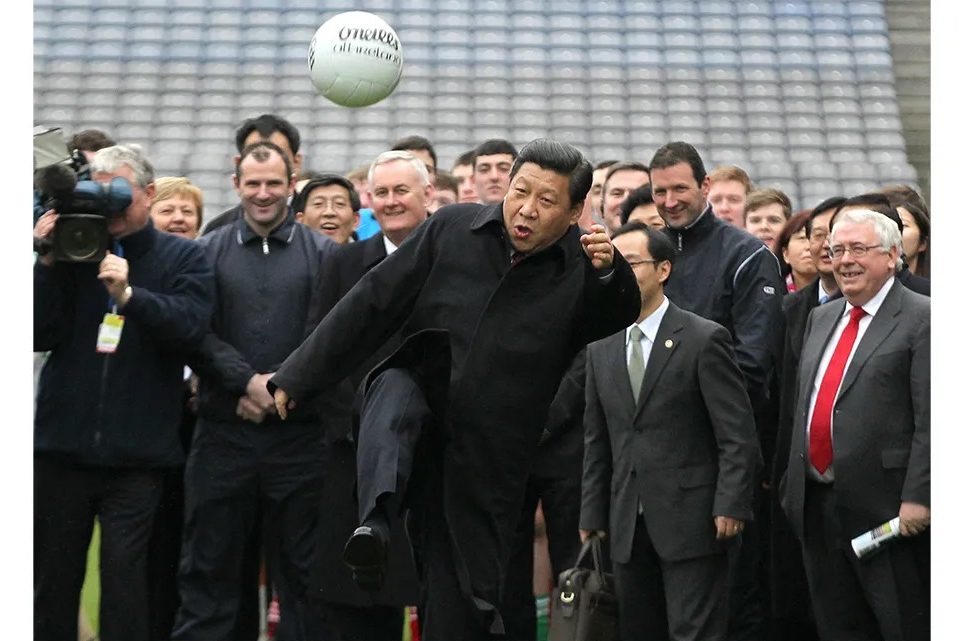In football, you are always stronger in numbers. With a shared focus, people from different cultures, nationalities, races, sexual orientations, political affiliations and religions can unite to achieve incredible things. When you pull on that national team shirt, rivalry subsides and is replaced with a shared desire to win. When fans step into that stadium, for 90 minutes they feel a part of something, a collective, able to leave any worries outside those turnstiles. To many it is a religion. To me, it’s still a dream.
You grow up idolizing figures in this game who turn out to be just like you and me. Human beings with human emotions and who, more than likely, have overcome some level of adversity in their career. Disappointingly for some, the ‘stick to football’ advice doesn’t cut it where I’m from. See, when my community had nothing to call their own, they always found something in the way of kindness to give me. I am a product of their compassion, of their drive and of their willingness to offer me more than what was on my doorstep. I’d be doing that community and my family a disservice if I did not use my platform to speak on behalf of the millions whose voices are not being heard.
A shoulder injury has given me ample time to reflect. While I wish I could say significant progress has been made to stabilize households suffering with food insecurity across the UK, the reality is it’s become much worse — 27 percent worse than pre-pandemic. In fact, you could fill 27 Wembley stadiums with the 2.5 million children who are struggling to know where their next meal is coming from today. Low-income families are now faced with further deadlines, whether the end of furlough or the social security cut.
I’m not under the illusion that those in power have an easy job. There aren’t many of us who’d want to switch places, but regardless of the issues facing those decision-makers, our children should never be deemed secondary. Short-term solutions aren’t going to cut it. We need long-term planning executed well. Ultimately success comes down to communication — and this is where we have been falling short. Anyone who has followed my Child Food Poverty Task Force will know we have tried to increase uptake of the government’s Healthy Start scheme — which benefits low-income pregnant women and children under four. An extra 62,000 people in England are now using the scheme, but 40 percent of those eligible (216,000 families) are still not registered. These parents will likely be found in communities just like mine — no internet, no high street, just word of mouth.
Adopting a grassroots approach to this child hunger pandemic is key. Those most in need of help must be able to gain access to the support available — door-to-door interaction, data capture and leaflets are vital for achieving this. The proposed digitization of the Healthy Start scheme might bring some benefits, but it could put up barriers. Ofcom estimates 11 percent of lower socio-economic households don’t have home internet access. Nor, frankly, do they have 55p per minute to activate the prepaid card via a telephone. It’s also problematic that those using the scheme have to reapply, squashing the work the Task Force has done to support the uptake.
Children are returning to school — a welcome step for some, a daunting prospect for others impacted by lack of social interaction and lack of access to learning during the pandemic. This summer, I spoke to a primary school teacher who had been concerned about a child who was continually falling asleep. The teacher eventually realized she was using her free school meal eligibility to wrap up food to take home for her younger siblings who didn’t qualify, understanding it could be all they’d eat that day. Stories like this are not uncommon. In fact, about half of families with children living in food insecurity are not eligible for free school meals. Education can be a positive avenue out of poverty, but if children are hungry, how can we expect them to engage in learning? That’s why I am calling on the British government to expand free school meal eligibility, in line with the National Food Strategy recommendations.
Party politics has never interested me. What interests me is working together to find sustainable solutions. The long-term effects of a global pandemic will not be resolved with short-term relief packages. So it’s time for us all to unite with the passion we saw during the Euros and make sure every child in this country is given a fair chance, and that child hunger is eradicated. No child should be starting 20 yards behind any other just because of the community they live in. It’s time to level up.
This article was originally published in The Spectator’s UK magazine. Subscribe to the World edition here.

























